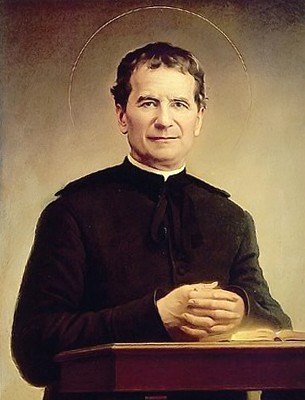One of the chief uses of religion is that it makes us remember our coming from darkness, the simple fact that we are created.
G.K. Chesterton
As with anything in life, if you want to do something worthwhile then do it well. If your desire is to be a catechist then your aim should be the salvation of souls. This is the fundamental aim of a catechist’s mission. It’s not simply regurgitating information; on the contrary, it's leading a soul under your care to seek an intimacy with Christ beyond measure. This means providing an authentic witness of the loving Gospel where you practice what you preach since students learn more from an authentic witness of the faith. This requires a responsibility to know your students and proclaim the basic principles of the faith (Creed) if possible on a daily basis.
Part of a catechist’s responsibility is to promote the Gospel message and that Christian living provides enjoyment which hopefully will lead to a conversion of heart. Within this process is the important theological virtue of love which drives the catechist’s ability to catechize. The virtue of love served as the basis for St. John Bosco’s oratory for boys and girls and was the basis of his catechetical system of formation.
St. John Bosco was one of the greatest teachers of the Catholic faith, especially in reaching the young men of his day. His proving ground was the very difficult streets of Turin, Italy where the theological virtue of charity was more hoped for than seen on a daily basis. Knowing the environment he had to work with, Don Bosco made it his aim for “his boys” to see themselves as children of God. He desired to “save their souls.”
There was no miscommunication on St. John Bosco’s part to reach the souls of these boys. Because of his direct, stern, yet loving approach many children were taken aback on how direct he was towards them, a “fight fire with fire” approach but with Christ at the center.
The Identity of the Catechist
If you truly want to catechize then it must be a matter of the heart. This means a desire to reach the soul of the student and bring him into an active relationship with Jesus Christ. A good catechist introduces the virtue of love. A great catechist shows how to live it. We cannot forget that a void exists in life without religion. It leads to confusion, desolation, despair in a myriad of ways. These are some of the same characteristics we encounter in many of our students. Our responsibility is to identify these expressions of faith or lack thereof.
Our identity as catechists coincides with the understanding that we are always in the presence of God. A great catechist reveals the presence of God through their authentic witness of the Gospel but also through their acts of charity towards their students. One of the greatest charisms a catechist possesses is the ability to respect his students which in itself provides an understanding of religion as a way of life genuinely lived out, and not a class.
If you want to be loved, you must love yourself, and the students must see the love of the teacher to the student.
Using St. John Bosco’s Preventive System
The Preventive System is an approach based on three core principles: Reason, Religion, and Kindness. Each principle has a specific point to bring the child closer to Christ.
The Principle of Reason provides a reasonable atmosphere where the child would be given the opportunity to consent to instruction and guidance. The goal of this first principle is to develop good Christians and useful citizens. The teacher must be the bridge to a child’s discovery of the world through patience, diligence, and prayer.
The Principle of Religion stressed the ugliness of sin and the value of living a virtuous life. The aim is to develop the intellectual and physical gifts the child possesses and how he can be directed toward a greater good. There are five steps within this principle to help youth attain personal holiness:
- Holiness of ordinary life
- The joy and optimism of holiness
- Centrality of Confession
- The Holy Eucharist
- Love of Mary
The Principle of Kindness emphasizes the virtue of love. St. John Bosco would stress: “Let us make ourselves loved, and we shall possess their hearts.” In other words, our Christian witness must be constant for the development of the child. The learning environment should be warm and inviting, not cold. The family spirit reigned; he did this through rapport, friendliness, presence, respect, attention, dedication to service, and personal responsibility.
The core of all three principles of the Preventive System is to draw the child away from a view that only he exists and no one else. As the last principle stressed; “the family spirit reigned.” We want the child to know that he is part of God’s plan by the very fact he was created in His image and likeness. This in turn will help the child view others in the same light.
What made St. John Bosco’s methods so effective was his willingness to go into the heart of the child regardless of his state in life and see Christ in him. Wisdom tells us these methods not only served St. John Bosco well; they can also reawaken our relationship with Christ. The goal is to foster productive Catholic citizens who seek to assist others before themselves. When teaching others about his preventive system St. John Bosco would always remind his students: “Get them to love you and they’ll follow you anywhere.”
St. John Bosco, patron of all Catechists, pray for us!
Copyright 2015, Marlon de la Torre
"Don BoscoII" by Fontevrault - Own work. Licensed under Public Domain via Wikimedia Commons.
About the Author

Marlon De La Torre
Marlon currently serves as the Director of Catechist Formation and Children’s Catechesis for the Catholic Diocese of Fort Worth. He is an adjunct professor of Catechetics for Holy Trinity Seminary serving the Diocese of Dallas and Fort Worth and an adjunct professor of Catechetics for The Catholic Distance University. His published works include Screwtape Teaches the Faith. Learn more about Marlon's work at his blog Knowing Is Doing.

 "
"

.png?width=1806&height=731&name=CatholicMom_hcfm_logo1_pos_871c_2728c%20(002).png)
Comments